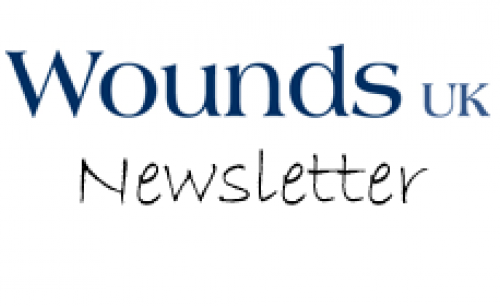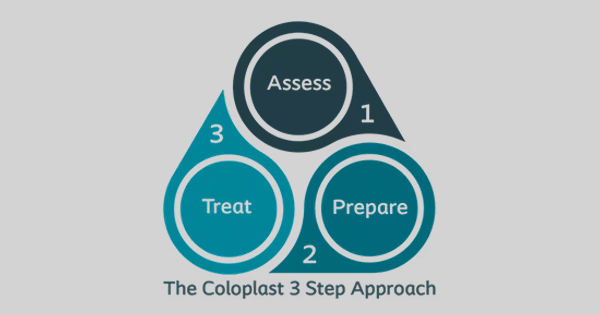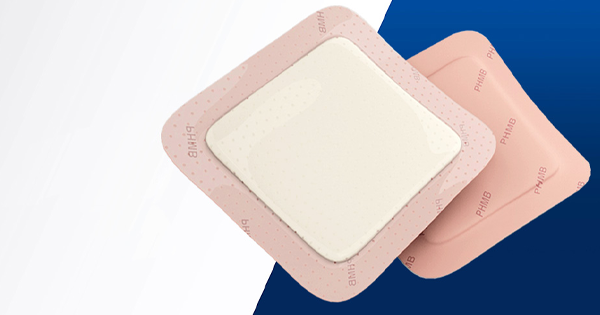| |
Welcome to the March issue and a readers’ survey
The first issue of Wounds UK in 2019 is now available online and in print. The March issue is brimming with interesting and informative articles, intended to bring you up to date with all national wound care campaigns, engage you with a thought-provoking wound care debate, equip you with the evidence needed to base your clinical practice on and increase your general knowledge about wound care with our regular columns. To help us understand your interests better and make informed editorial decisions, we would like you to fill out our Wounds UK readership survey. It won’t take long and all respondents will be automatically entered into a prize draw for a chance to win three individual, fully-funded places at this year’s Harrogate conference: https://www.surveymonkey.co.uk/r/MX853MD. Thank you for your time, we hope you enjoy reading this issue. Read more. |
|
|
Should the gates for evidence-based medicine be widened?
Clinical practice is shaped in part, or wholly, by guidelines which, in turn, are developed from the repository of available evidence. In the quest for best clinical practice, wound care professionals are led in search of ‘best-available evidence’. But what exactly does ‘best-available evidence’ consist of? Keith Cutting, Richard White, Una Adderley, Chris Bojke, Nicky Cullum and Steven Jeffery discuss. Read more |
|
|
A risk assessment tool for the use of INPWT
Incisional negative pressure wound therapy (INPWT) has been identified as an effective therapy for the prevention of surgical site complication in high-risk patients. In her article, Joanna Peart describes the development of a risk assessment tool that can be used to help clinicians identify which adult patients are at most risk of developing surgical site complication and their suitability for INPWT. Read more |
|
|
Wound healing rates in the community
Trudie Young, Janette Ryzy, Sian Cryer and Michael Clark present a quality improvement (QI) project that identified that wound healing rates in GP practices can be markedly improved through the introduction of a wound clinic. Their approach was successful in the two wound clinics established within the QI project, with healing rates increasing to around 70% in both clinics. Read more |
|
|
Developing pressure ulcers when sitting
Sitting in the same position for extended periods of time poses a risk of developing pressure ulcers, particularly across the buttock area. Carole Bartley and Melanie Stephens look at the evidence base to explain why pressure ulcers can develop in the seated individual. They believe that an understanding of the aetiology and pathophysiology can inform practitioners and lead to improved patient outcomes. Read more |
|
|
Cutaneous wounds in systemic sclerosis
Systemic sclerosis is a relatively uncommon autoimmune connective tissue disease that can cause digital ulcers, ulcers over joint contractures or calcinosis, and lower limb ulcers. Sophia Tate, Annie Price and Keith Harding describe a series of patients with an underlying diagnosis of systemic sclerosis, highlighting the challenging nature of managing this condition. Read more
|
|
|
Best abstracts at the Wounds UK conference
Stefanie Mahan, Verity Ashcroft, Julie Green, Maria Goldsmith, Dr Amy Ferris, James Masters and Stephen Barker were winners of best abstracts in their respective categories at the last Wounds UK Annual Conference. Read more
Make sure you win this year by submitting your abstract at:https://www.surveymonkey.co.uk/r/WUKH19
|
|
|
Case study series: managing skin integrity — octenicare repair creme
This case series evaluates the clinical performance and outcomes of twice-daily octenicare repair creme (schulke) application. Octenicare repair creme is an emollient and humectant that was used on patients with a range of skin conditions. The case series also reports on the acceptability of use to the clinician and patients. Read more
|
|
|
Best Practice Statement: Ankle brachial pressure index APBI in practice
This document highlights the importance of ABPI testing and how automated devices may help to improve the process, focusing on data using the ABPI MESI MD device (medi UK). Read more
|
|
|
Lower limb conference — Bristol 23 May
Lower limb ulceration continues to create challenges for clinicians and consequently requires a major platform in order to change care delivery and improve outcomes. Wounds UK will provide a variety of sessions that address critical and practical aspects of assessment, management and prevention. The aim is to provide clinicians with the necessary knowledge to meet the care needs of patients. Read more
Please visit our Events page for information on all other forthcoming events.
|
| |
|
|
|
|














